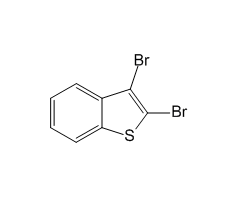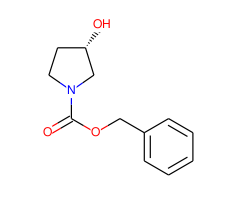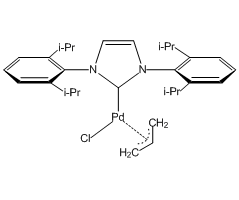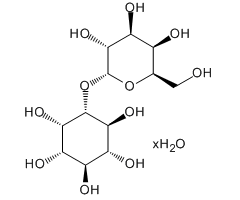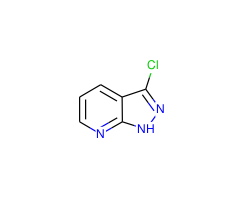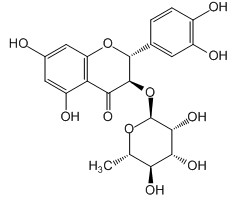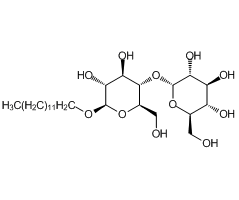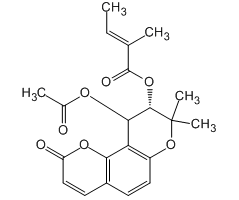基本信息
| 分子式 | C15H14N2O |
| 分子量 | 238.28 |
| 存储条件 | Freezer -20℃ |
产品描述
Semaxinib (SU5416) is a potent and selective inhibitor of VEGFR (Flk-1/KDR) with an IC50 of 1.23 μM.
靶点(IC50 & Targe)
Flk1,1.23±0.2μM
体外研究
Semaxinib (SU5416) inhibits VEGF-driven mitogenesis in a dose-dependent manner with an IC50 of 0.04±0.02 μM (n=3). In contrast, Semaxinib (SU5416) blocks FGF-dependent mitogenesis of HUVECs with an IC50 of 50 μM (n=10). An IC50 of 20.26±5.2 μM, which is about 20-fold less in potency on PDGF-dependent autophosphorylation, is observed when SU5416 is tested in NIH 3T3 cells overexpressing the human PDGF receptor β[1].
体内研究
Daily administration of Semaxinib (SU5416) (i.p., 3 mg/kg/day) inhibits the local growth of C6 tumors in the colon. A comparable level of growth inhibition (62% by day 16; P=0.001) is observed for tumors growing in the colon in comparison with ones growing in the hindflank region (54% by day 18; P=0.001). These results indicate that Semaxinib (SU5416) could inhibit tumor growth at a site other than the subcutaneous implantation site, where the preexisting vasculature may be different[1]. Daily treatment with Semaxinib (SU5416) (25 mg/kg) results in a significantly lower tumor growth rate with tumor masses of up to 8% of that present in control animals by day 22 after implantation. Inhibition of tumor growth is clearly preceded by a marked reduction of the tissue area covered by the newly formed glioma microvasculature in the Semaxinib-treated group, indicating a reduced initial tumor vascularization[2].
细胞实验
3T3Her2 and 488G2M2 are NIH3T3 fibroblast cell lines engineered to overexpress Her2 and to express human PDGF-BB and human PDGF receptor β. Both cell lines are cultured in DMEM supplemented with 2% CS and 2 mM L-glutamine. C6, Calu 6, A375, A431, and SF767T are plated in their respective growth medium at 2×103 cells/100 μL/well in 96-well, flat-bottomed plates. Semaxinib (SU5416) is serially diluted in media containing DMSO (<0.5%) and added to cultures of tumor cells 1 day after the initiation of culture. Cell growth is measured after 96 h using the sulforhodamine B method. IC50s are calculated by curve fitting using four-parameter analysis[1].MCE has not independently confirmed the accuracy of these methods. They are for reference only.
动物实验
Mice[1]
Female BALB/c nu/nu mice (20-22 g; 12 weeks of age) are used. Aseptic technique is used during this surgical procedure. A small midline incision (1 cm) is made in the abdomen directly over the colon. C6 cells are implanted (0.5×106 cells/animal) under the serosa of the colon using a 27-gauge needle. After implantation, all exposed sections of the intestine are returned into the abdominal cavity. The peritoneum and skin are closed using a 6.0 surgical suture and wound clips. The wound clips are removed 7 days after surgery. Animals are treated once daily with a 50 μL i.p. bolus injection of either Semaxinib (SU5416) or DMSO, beginning 1 day after implantation. Approximately 13-16 days after implantation, animals are euthanized, and local tumor growth on the colon is quantitated either by weighing the tumors or by measuring the tumors using venier calipers. Tumor volumes are calculated as the product of length×width×height.
Rats[3]
Male Sprague Dawley rats (n=60, 6-8 wk) are randomly divided among five groups: control (Con), Semaxinib (SU), pneumonectomy (PNx), Semaxinib+hypoxia (SuHx), and Semaxinib+PNx (SuPNx). The SuHx protocol is employed. Briefly, animals are injected with Semaxinib (25 mg/kg) dissolved in carboxymethylcellulose (CMC) and exposed to hypoxia (10%) for 4 wk followed by re-exposure to normoxia. PNx animals underwent a left pneumonectomy. Two days following PNx surgery an injection of Semaxinib is administered (25 mg/kg). The Con group received only the solvent CMC. Echocardiography is utilized at baseline (prehypoxia/presurgery), week 2, and week 6 to determine cardiac morphometry and function. Two and six weeks postsurgery/posthypoxia animals are anesthetized and right ventricle (RV) and left ventricle (LV) pressure measurements via catheterization are performed.MCE has not independently confirmed the accuracy of these methods. They are for reference only.
参考文献
[1]. Fong TA, et al. SU5416 is a potent and selective inhibitor of the vascular endothelial growth factor receptor (Flk-1/KDR) that inhibits tyrosine kinase catalysis, tumor vascularization, and growth of multiple tumor types. Cancer Res, 1999, 59(1), 99-106.
[2]. Vajkoczy P, et al. Inhibition of tumor growth, angiogenesis, and microcirculation by the novel Flk-1 inhibitor SU5416 as assessed by intravital multi-fluorescence videomicroscopy. Neoplasia, 1999, 1(1), 31-41.
[3]. Happé CM, et al. Pneumonectomy combined with SU5416 induces severe pulmonary hypertension in rats.Am J Physiol Lung Cell Mol Physiol. 2016 Jun 1;310(11):L1088-97.
[4]. Izquierdo-Garcia JL, et al. Metabolic Reprogramming in the Heart and Lung in a Murine Model of Pulmonary Arterial Hypertension. Front Cardiovasc Med. 2018 Aug 15;5:110.
安全信息
| 图形或危害标志 |  |
| 提示语 | Warning |
| 危险说明 | H315 H319 H335 |
| 防范说明 | P261 P305+P351+P338 |
| WGK | 3 |




